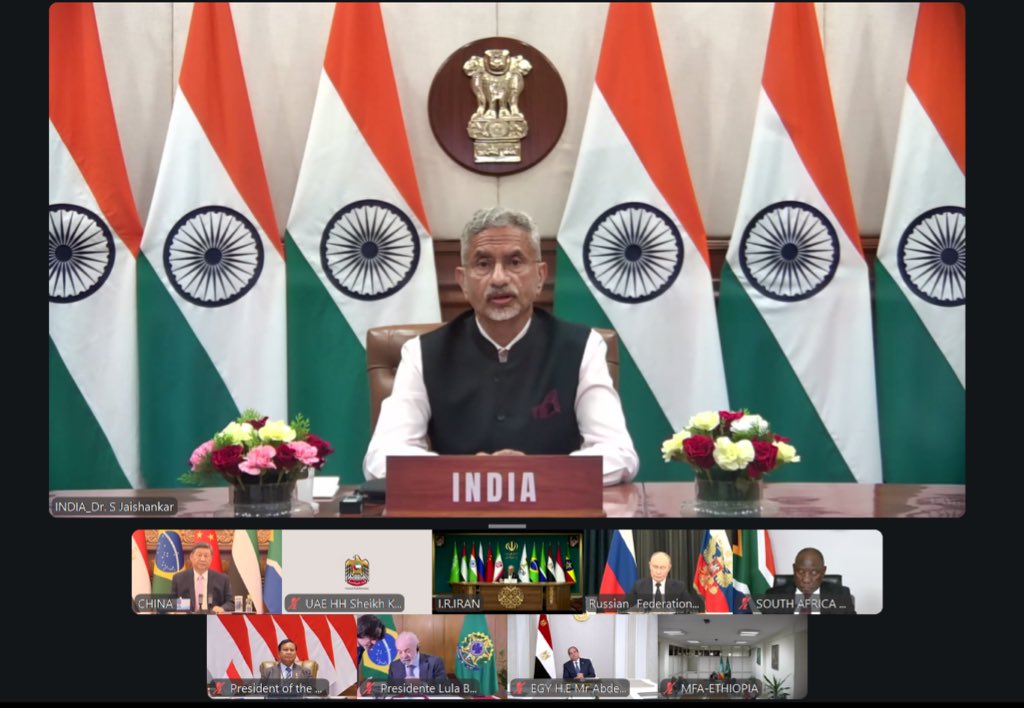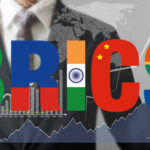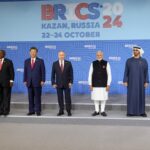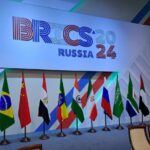At the virtual BRICS Leaders’ Summit on September 8, 2025, India’s External Affairs Minister S. Jaishankar cautioned that the state of the world today is “cause for genuine concern,” citing the cumulative impact of the Covid-19 pandemic, conflicts in Ukraine and the Middle East, volatility in trade and investment, extreme climate events, and the slowing of the Sustainable Development Goals (SDG) agenda.
The meeting, chaired by Brazilian President Luiz Inácio Lula da Silva, was attended by Russian President Vladimir Putin, South African President Cyril Ramaphosa, Egyptian President Abdel Fattah El-Sisi, Iranian President Masoud Pezeshkian, Indonesian President Prabowo Subianto, UAE Crown Prince of Abu Dhabi Khaled bin Mohamed, along with representatives from India and Ethiopia.
Representing Prime Minister Narendra Modi, Jaishankar said the multilateral system appears to be “failing the world,” with many pressing challenges left unaddressed.

“The members of BRICS represent a broad diversity of societies who are nevertheless deeply affected by these developments,” he said. “Today, the focus is on stabilizing the international economy and the world order. But it is equally essential that we turn our attention to ongoing conflicts, not least because they have direct developmental and supply chain implications.”
The Minister He stressed the need for fair and transparent economic practices, resilient and diversified supply chains, and democratized manufacturing across geographies. “Progress in that regard will contribute to regional self-sufficiency and relieve anxieties at times of uncertainty,” he noted.
On trade, Minister Jaishankar urged constructive and cooperative approaches, warning against barriers, restrictive measures, and linking trade with non-trade matters. He said India has been pressing for solutions to its trade deficits with BRICS partners and hoped “this realization will be part of the takeaways from today’s meeting.”
He reiterated India’s support for an “open, fair, transparent, non-discriminatory, inclusive, equitable and rules-based” trading system with Special and Differential Treatment for developing countries.
Minister Jaishankar also underlined the urgent need for conflict resolution, particularly to safeguard food, energy, and fertilizer security in the Global South. “A selective protection cannot be a global answer. An early end to the hostilities and undertaking diplomacy to ensure a durable solution is the obvious pathway before us,” he said.
Calling for reforms in global governance, the Minister noted that gridlocks in international organizations, including the UN, have underscored the urgency of “reformed multilateralism” and greater representation for developing nations. “The BRICS have taken a positive view of this need for reform and we expect that it would collectively become a strong voice for much awaited change,” he said.
He also emphasized that climate change must not slip down global priorities, commending initiatives such as the International Solar Alliance, Coalition for Disaster Resilient Infrastructure, and Global Bio-fuels Alliance.
At the Summit, Chinese President Jinping emphasized the urgency of global cooperation, warning that “transformation unseen in a century is accelerating across the world.”

“Hegemonism, unilateralism, and protectionism are getting more and more rampant,” Jinping said in his address titled Forging Ahead in Solidarity and Cooperation. “BRICS countries, standing at the forefront of the Global South, should act on the BRICS Spirit of openness, inclusiveness and win-win cooperation, jointly defend multilateralism and the multilateral trading system, advance greater BRICS cooperation, and build a community with a shared future for humanity.”
He outlined three key proposals:
- Upholding multilateralism to defend international fairness and justice.
- Promoting openness and win-win cooperation to safeguard global economic and trade systems.
- Strengthening solidarity and cooperation to foster shared development.
Echoing these themes, Brazilian President Lula da Silva said BRICS leaders “discussed the need to advance toward a more just, balanced, and inclusive international order, one capable of responding more effectively to the demands of the Global South.”
Against a backdrop of political and economic uncertainty, Lula stressed that the bloc reaffirmed its commitment to multilateralism and to reforming global institutions. “We will remain committed to actively contributing to peace and to building collective solutions for global challenges,” he added.






